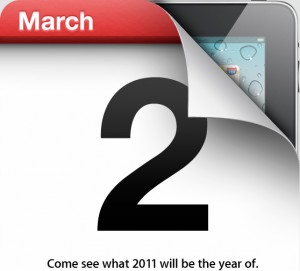I stumbled upon an article titled, “The Best Tablet Not Always the iPad“. I was curious as to why the author thought this way so I read through it to understand his arguments. Not surprisingly, as is so common with most unfavorable reviews of the iPad or iPhone, the reviewer finds specific technical specifications of the iPad (or lack thereof), compares it to devices that have bigger or more powerful technical specs, and comes to the conclusion that the iPad is not as good as those other devices. Generally these types of reviews miss the forest for the trees and do not take into account the entire user experience that has made the Apple devices so popular. And many technical writers wonder why the general public is buying Apple devices like hotcakes while ignoring other products of arguably better technical specifications.
The author bases his argument that the iPad is not the best tablet primarily upon another story that is linked within his article. That story states, “As we detailed in our Thrive [a tablet device] review, the full-sized USB port, HDMI port, and SD card make it a more productive tablet than the iPad.” Both authors have a pretty specific definition of “productive”, being that one can plug various other technology into a device without “expensive accessories”.
And thus, we quickly see why so many “techies” have a hard time figuring out why the general public loves their iOS devices: techies think that in order for a device to be “productive”, the device must have specific technology features. The general public knows that being productive means that the device works reliably, is easy to use, and does what they want it to do. Most people could care less about ports. They have found little need to physically connect other things as much as some would lead them to believe. If you don’t believe me, the numbers the author claims to be astounded by should be the proof. If the general public had such a great need for ports or other technical specs, then the iPad would not continue to sell so well – especially to business users.
The author states that he is astounded by the sales figures of the iPad, “considering how little you can do on an iPad out of the box”. I would find his opinion astounding, except for the fact that I have had many conversations like this with techie-types since the iPhone first came out. It simply comes down to the different ways of thinking the “Old World of Technology” has as compared to the “New World of Technology”. Again, he believes the iPad is limited because one can’t plug things into it right out of the box. Most other people believe the iPad is limitless out of the box because they can so quickly and easily get it working. Right away they are on the App Store downloading from an incredible selection of software that will make them productive without the need of a USB device, an SD card, or an HDMI cable. No other company can match the ease-of-use and user experience that Apple has provided for the iPad (and all iOS devices). This is the secret to Apple’s success and everyone else is struggling to simply copy Apple’s hardware – and still missing the point entirely!. The hardware is not so important when compared to the entire user experience.
And if we want to throw down when it comes to technology features, I could argue that technologies like AirPlay make physical connectivity a thing of the past. Why bother with USB and HDMI when one can wirelessly stream their media? Especially when one can still have physical connectivity IF they need it with OPTIONAL accessories (and I don’t agree that a $29 adapter is expensive). No other tablet has a feature that even comes close to the reliability, ease-of-use, and acceptance of AirPlay, so if we want to play the geek card I think Apple still has ’em beat.
